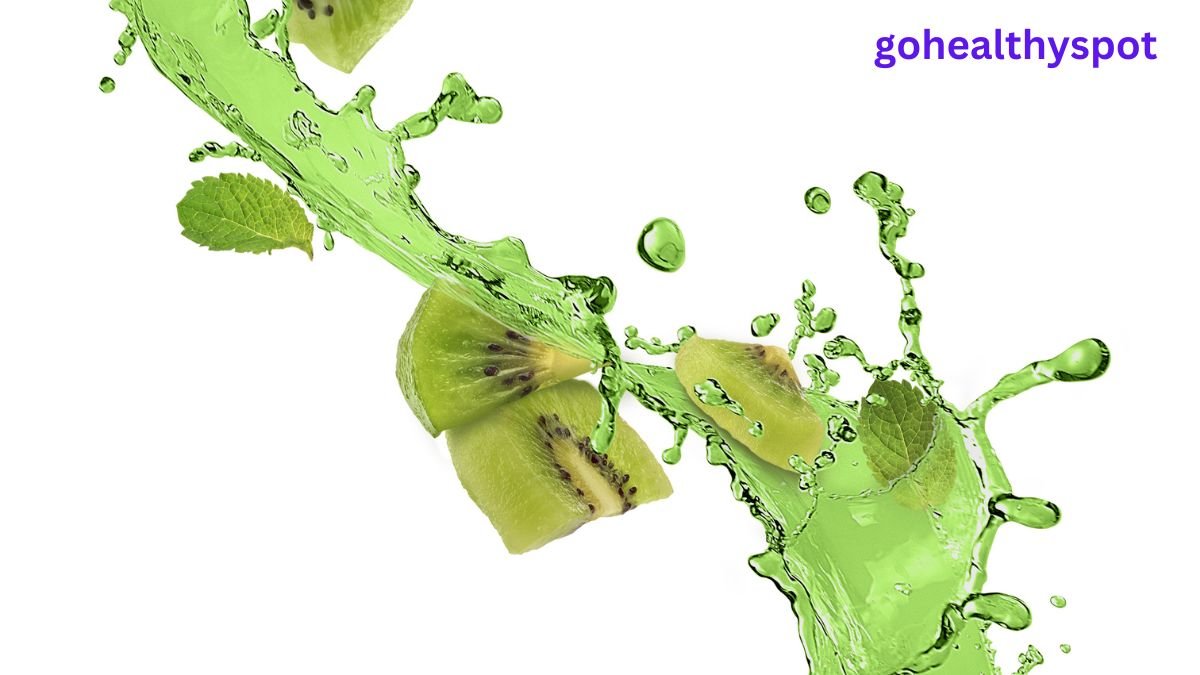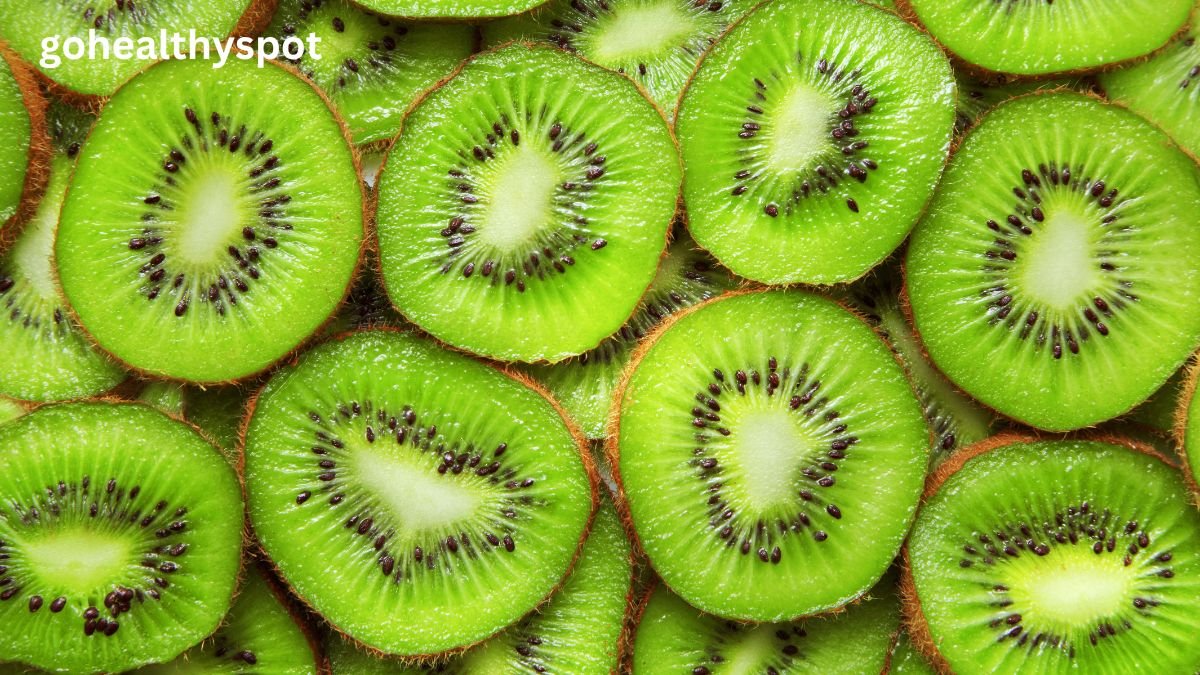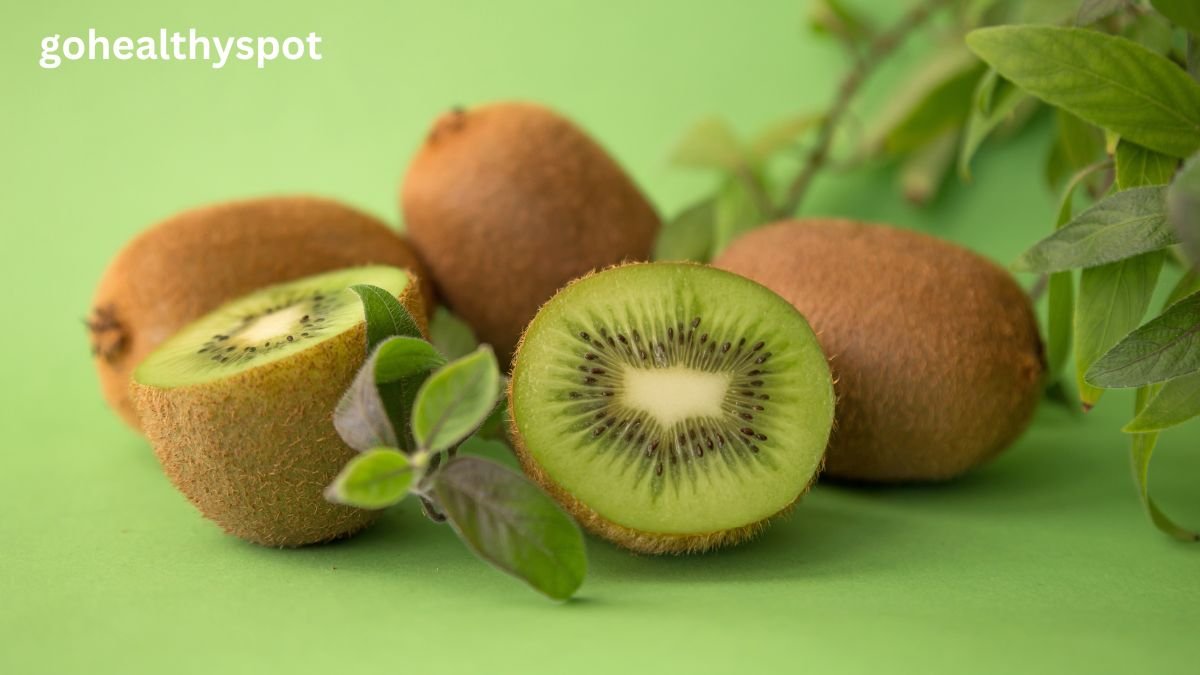Key Topics of Content
Introduction :
Scientific Name of Kiwi : Actinidia Deliciosa
Kiwis are small but mighty, These fuzzy fruits are brimming with essential nutrients that offer numerous health advantages. Packed with vitamin C, an antioxidant powerhouse, kiwis bolster your immune system and aid in collagen production. Their high fiber content promotes digestive health, while potassium helps regulate blood pressure.
Additionally, kiwis contain antioxidants that combat harmful free-radicals, potentially reducing the risk of chronic diseases. So, next time you’re craving a refreshing and nutritious snack, reach for a kiwi benefits.
Kiwi Benefits for Skin :
Kiwi benefits for skincare superhero packed with nutrients. Its high vitamin C content boosts collagen production, reduces wrinkles, and brightens skin. Naturally hydrating, it plumps and refreshes your complexion. The fruit’s gentle exfoliating properties remove dead skin cells, revealing a smoother, radiant you. With anti-inflammatory benefits, kiwi soothes irritated skin and reduces redness. Enjoying kiwi regularly can even out skin tone, fade dark spots, and balance oil production.
Kiwi benefits combination of antioxidants helps protect the skin from the damaging effects of UV radiation and environmental pollutants. Kiwi contains a good amount of Vitamin E, which helps in keeping the skin hydrated and moisturized. It also helps in repairing damaged skin and improving its texture. The high levels of Vitamin K in kiwi can help with the healing of bruises and cuts, promoting faster skin recovery.
Kiwi Benefits for Male and Female :
Kiwi Benefits for Males
Enhances Sexual Health : Kiwi is rich in amino acids like arginine, which can improve blood flow and may enhance sexual function. The high levels of antioxidants also promote sperm health and quality.
Supports Muscle Recovery : The potassium content in kiwi is beneficial for muscle function and recovery after intense physical activity, making it particularly useful for men who engage in regular exercise.
Improves Prostate Health : The antioxidants in kiwi can help reduce oxidative stress, which is linked to prostate health. Additionally, the anti-inflammatory properties may contribute to reducing the risk of prostate-related issues.

Kiwi Benefits for Females
Supports Pregnancy : Kiwi is rich in folate, which is crucial for pregnant women as it helps prevent neural tube defects in the developing fetus. It also provides essential nutrients that support overall health during pregnancy.
Balances Hormones : The nutrients in kiwi can help regulate hormonal balance, which is particularly beneficial for women experiencing symptoms related to menstruation or menopause.
Improves Bone Health : Women are more prone to osteoporosis, especially after menopause. The Vitamin K and calcium in kiwi contribute to bone health by supporting bone density and reducing the risk of fractures.
Helps Manage Weight : Kiwi is low in calories and high in fiber, making it a great option for women looking to manage their weight. It helps in feeling full and curbing overeating.
Conclusion:
Kiwi is a versatile fruit that offers a wide range of health benefits for both men and women. Whether it’s boosting immunity, improving digestion, or enhancing skin health, incorporating kiwi into your diet can contribute to overall well-being.
Kiwi Benefits Sexually :
Kiwi offers several sexual health benefits due to its rich nutrient profile. The fruit is packed with Vitamin C, Vitamin E, and antioxidants, which enhance blood circulation, vital for sexual function in both men and women.
For men, the amino acid arginine in kiwi can support erectile function by improving blood flow, while its high antioxidant content helps protect sperm from oxidative damage, enhancing sperm quality and fertility. Kiwi also boosts libido by reducing stress and anxiety, thanks to its mood-enhancing properties. Additionally, its folate content is crucial for reproductive health, benefiting both male and female fertility.
Overall, incorporating kiwi into your diet can support sexual health by improving blood flow, enhancing stamina, balancing hormones, and promoting relaxation.
Side Effects of Eating Kiwi :
While kiwi is generally healthy and safe for most people, it can cause side effects, especially if consumed in excess or by individuals with certain sensitivities. Some people may experience allergic reactions, such as itching, swelling of the mouth, or skin rashes, particularly those with latex or fruit allergies.
The enzyme actinidain in kiwi can cause oral irritation or a tingling sensation in the mouth, especially when eaten in large amounts. Its high fiber content, while beneficial for digestion, can lead to digestive discomfort like bloating or diarrhea if consumed excessively.
Additionally, kiwi contains oxalates, which may contribute to kidney stone formation in susceptible individuals, and its high Vitamin K content could interfere with blood-thinning medications.
Note : For those with diabetes, eating too much kiwi might affect blood sugar levels, so moderation is recommended.Nutrition and Vitamins in Kiwi :
Kiwi is a nutrient-dense fruit packed with essential vitamins and minerals that offer a range of health benefits. It is particularly rich in Vitamin C, providing more than 100% of the daily recommended intake in just one medium-sized kiwi, which supports immune function, skin health, and collagen production.

Kiwi also contains Vitamin K, which is important for blood clotting and bone health, as well as Vitamin E, a potent antioxidant that protects cells from oxidative damage. The fruit is a good source of dietary fiber, aiding in digestion and promoting gut health.
| Nutrient | Amount |
| Calories | 42 |
| Total Fat | 0.4g |
| Sodium | 3.8mg |
| Total Carbohydrates | 10.1g |
| Dietary Fiber | 2.1g |
| Sugars | 6.7g |
| Protein | 0.8g |
| Vitamin C | 56mg |
| Potassium | 148mg |
Additionally, kiwi provides potassium, which helps regulate blood pressure, and folate, essential for cell growth and especially important during pregnancy. Other beneficial nutrients found in kiwi include copper, magnesium, and small amounts of B vitamins, all of which contribute to overall health and well-being.
Discover our world of Veggies and Fruits GOHEALTHYSPOT.COM
Frequently Asked Questions(FAQ) :
Q1. What happens if we eat kiwi fruit daily?
Daily kiwi consumption boosts immunity, aids digestion, improves heart health, enhances skin, and may offer additional benefits for men and women.
Q2. Is kiwi better than Apple?
Kiwi generally packs a higher nutritional punch than an apple. It’s richer in vitamins, especially vitamin C, and contains more antioxidants. However, both fruits offer valuable nutrients and should be part of a balanced diet.
Q3. Is kiwi good for weight loss?
Yes, kiwi can be beneficial for weight loss due to its low calories, high fiber content, and ability to promote satiety.
Q4. Can I eat kiwi at night?
Yes, you can eat kiwi at night. It is a low-calorie fruit and can aid digestion and sleep due to its serotonin content.
Q5. Is kiwi hot or cold?
Kiwi is considered a cold fruit.

this is a well written and informative piece of kiwifruit.